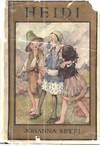
The Principles of Psychology
by SPENCER, Herbert
- Used
- Very Good
- Hardcover
- first
- Condition
- Very Good
- Seller
-
Adelaide, South Australia, Australia
Payment Methods Accepted
About This Item
Provenance: Richard Davies Hanson, with his armorial bookplate on the pastedown. London-born Sir Richard Davies Hanson (1805-1876), author and judge (eventually Chief Justice of South Australia); he settled there in 1846. He had been very active in colonization schemes since the early 1830s, and had lived and worked for some years in both Canada and New Zealand. In Adelaide in October 1846 he was admitted 'a barrister, solicitor, attorney and proctor' in the Supreme Court, and became heavily involved in law and politics in the colony. 'Despite his "steady flow of carefully measured words, weighted with calm and logical reasoning", Hanson often claimed that he turned to law to please his father but wished he was rid of it, especially its "archaic procedures" such as public executions. A voracious reader in his leisure, he turned readily to science and theology and was moved to share his knowledge. He believed in inevitable human progress and abhorred the mental barriers that hindered it. He saw the Bible as "God's main instrument in the education of the world" only if read with a spirit of inquiry instead of infallible authority. His first public lecture on this theme was to the South Australian Library and Mechanics' Institute in March 1849 and shocked his audience. He emerged again to lecture in 1856 to the East Torrens Institute and in 1857 to the South Australian Institute on the power derived from adult self-instruction. By 1860 he was propounding law in nature in relation to scripture to the Adelaide Philosophical Society. Members of the Bible Society were present and asked him to resign; when he refused, they elected a new president. Hanson moved on to law in creation, rejecting Lamarck as "absurd" but confessing attraction by Charles Darwin's theories, however incomplete. In 1865 his "Law in Nature and other Papers" was published in Adelaide and London; its argument that the Bible should not be exempt from inquiry was highly praised by Bishop Colenso, whose sermons on the Pentateuch had greatly influenced Hanson' ('Australian Dictionary of Biography').
Reviews
(Log in or Create an Account first!)
Details
- Bookseller
- Michael Treloar Antiquarian Booksellers
(AU)
- Bookseller's Inventory #
- 131650
- Title
- The Principles of Psychology
- Author
- SPENCER, Herbert
- Format/Binding
- Hardcover
- Book Condition
- Used - Very Good
- Quantity Available
- 1
- Edition
- First Edition
- Publisher
- Longman, Brown, Green, and Longmans
- Place of Publication
- London
- Date Published
- 1855
- Bookseller catalogs
- Medicine;
Terms of Sale
Michael Treloar Antiquarian Booksellers
About the Seller
Michael Treloar Antiquarian Booksellers
About Michael Treloar Antiquarian Booksellers
Glossary
Some terminology that may be used in this description includes:
- Cloth
- "Cloth-bound" generally refers to a hardcover book with cloth covering the outside of the book covers. The cloth is stretched...
- Edges
- The collective of the top, fore and bottom edges of the text block of the book, being that part of the edges of the pages of a...
- First Edition
- In book collecting, the first edition is the earliest published form of a book. A book may have more than one first edition in...
- Octavo
- Another of the terms referring to page or book size, octavo refers to a standard printer's sheet folded four times, producing...
- Bookplate
- Highly sought after by some collectors, a book plate is an inscribed or decorative device that identifies the owner, or former...
- New
- A new book is a book previously not circulated to a buyer. Although a new book is typically free of any faults or defects, "new"...
- Leaves
- Very generally, "leaves" refers to the pages of a book, as in the common phrase, "loose-leaf pages." A leaf is a single sheet...




